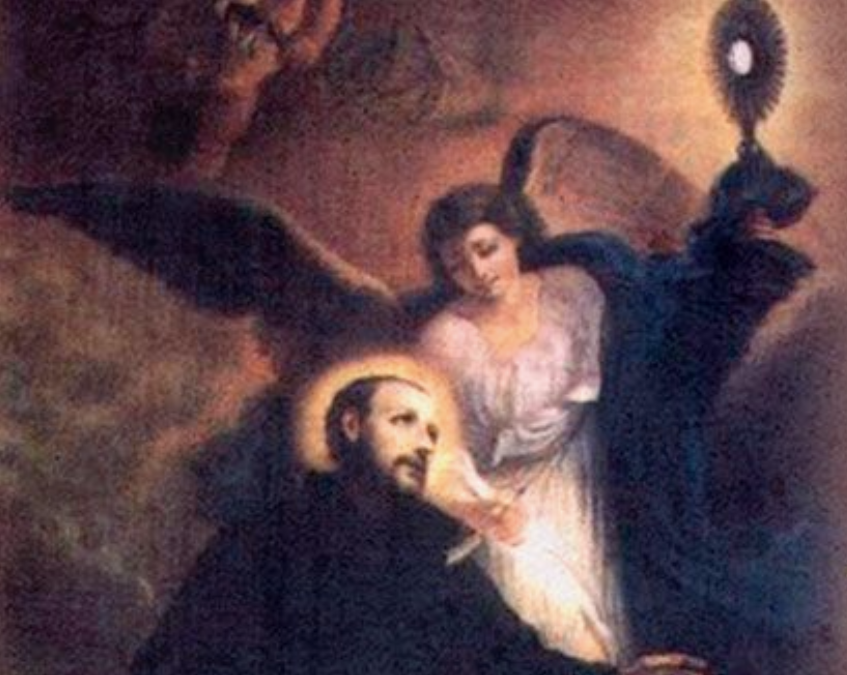St. Francis Caracciolo was born Ascanio, in Italy, on October 13, 1563. His mother was a relative of St. Thomas Aquinas, and Francis seemed inclined to follow a religious vocation as a young man.
At the age of 22, Ascanio contracted leprosy, and begged God to cure him. When he regained his health, he followed his calling to the priesthood, studying in Naples and joining the confraternity of The White Robes of Justice after his ordination. The White Robes were devoted to helping condemned criminals die a holy death.
When he had been in Naples for five years, Ascanio received a letter addressed to a distant relative, another Ascanio Caracciolo. The letter was an appeal from Fr. Giovanni Agostino Adorno, from Genoa, asking Ascanio to join him in founding a religious order. Although the letter was not meant for him, Ascanio was in total agreement with Adorno’s vision, and interpreted this as a sign from God. He responded, and he and Adorno worked together to draw up the institutions and rule. Their congregation was approved by Pope Sixtus V on July 1, 1588.
The congregation they founded lives active and contemplative life, with perpetual adoration of the Blessed Sacrament as one of its pillars. The brothers work with the sick, poor, and prisoners, and go out as missionaries. They take vows of poverty, chastity, and obedience, in addition to a fourth vow that they will not seek or accept ecclesiastical honors.
When he made his profession, Ascanio took the name Francis, in honor of Francis of Assissi. He was known for his devotion to the Blessed Sacrament, and was often found in ecstasy, repeating the words of the Psalm, “Zeal for thy house has consumed me.”
St. Francis died of a severe fever on June 4, 1608, the feast of Corpus Christi in Agnone, with his favorite phrase on his lips. The same words were found burned into the flesh of his heart when his body was opened after his death.
St. Francis was canonized in 1807.

